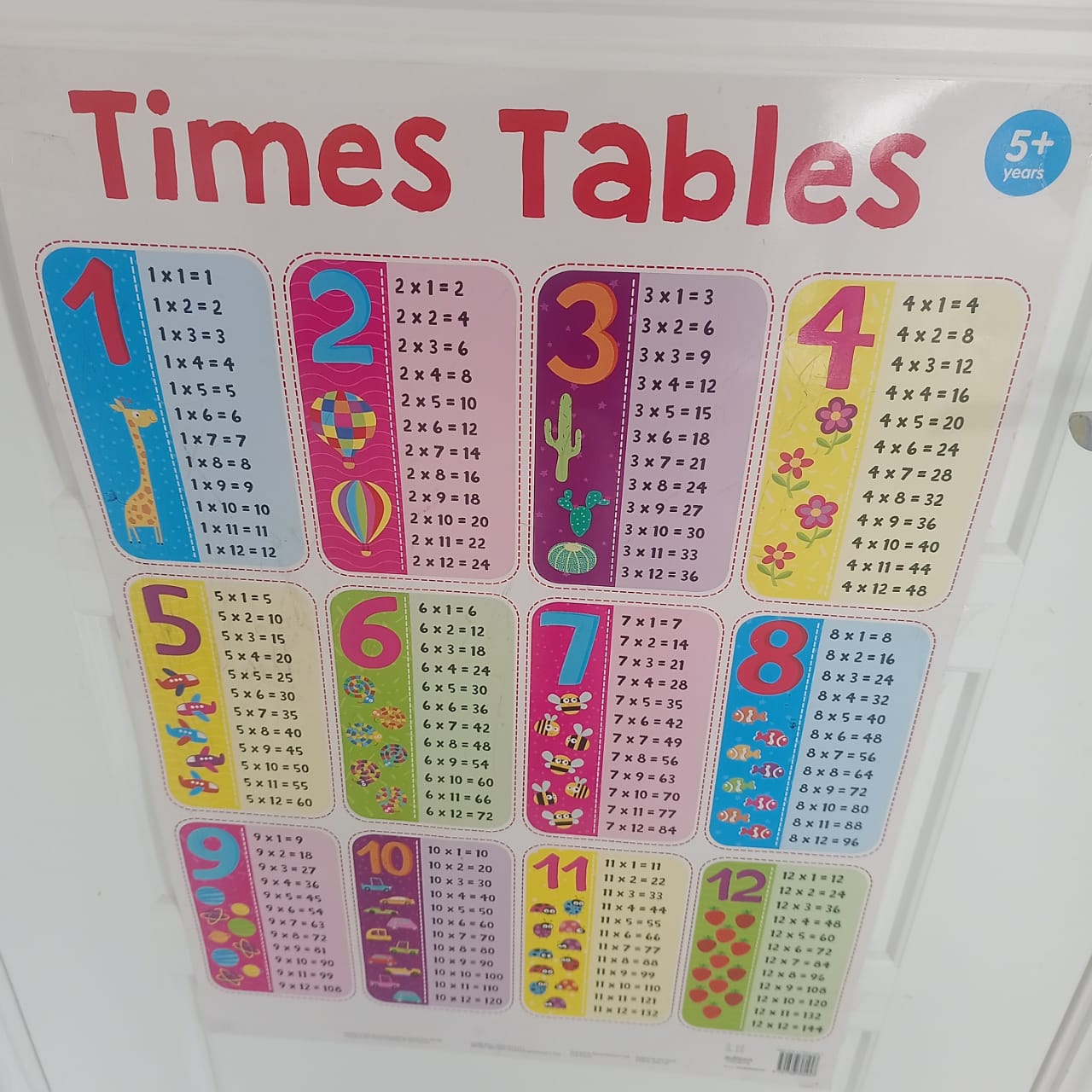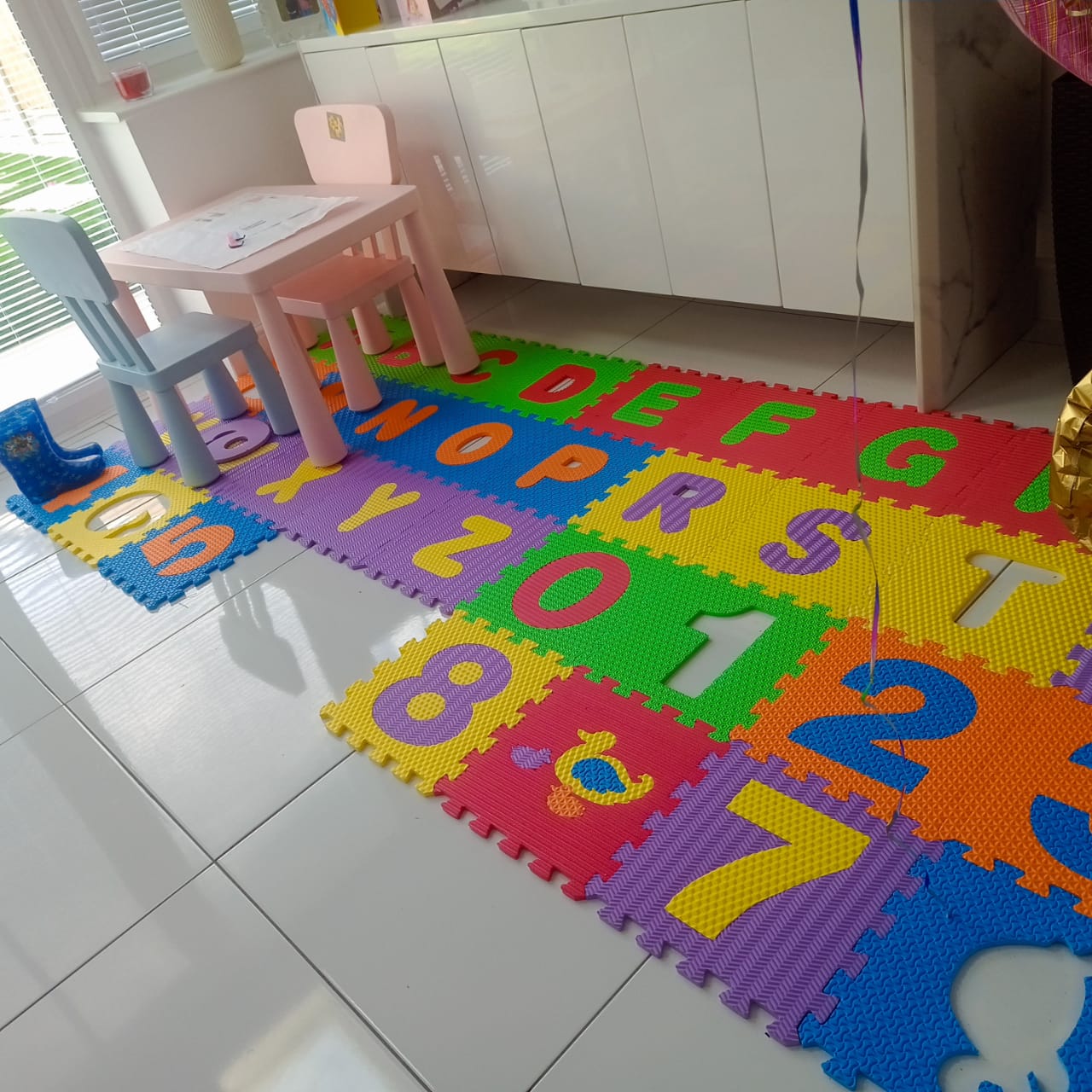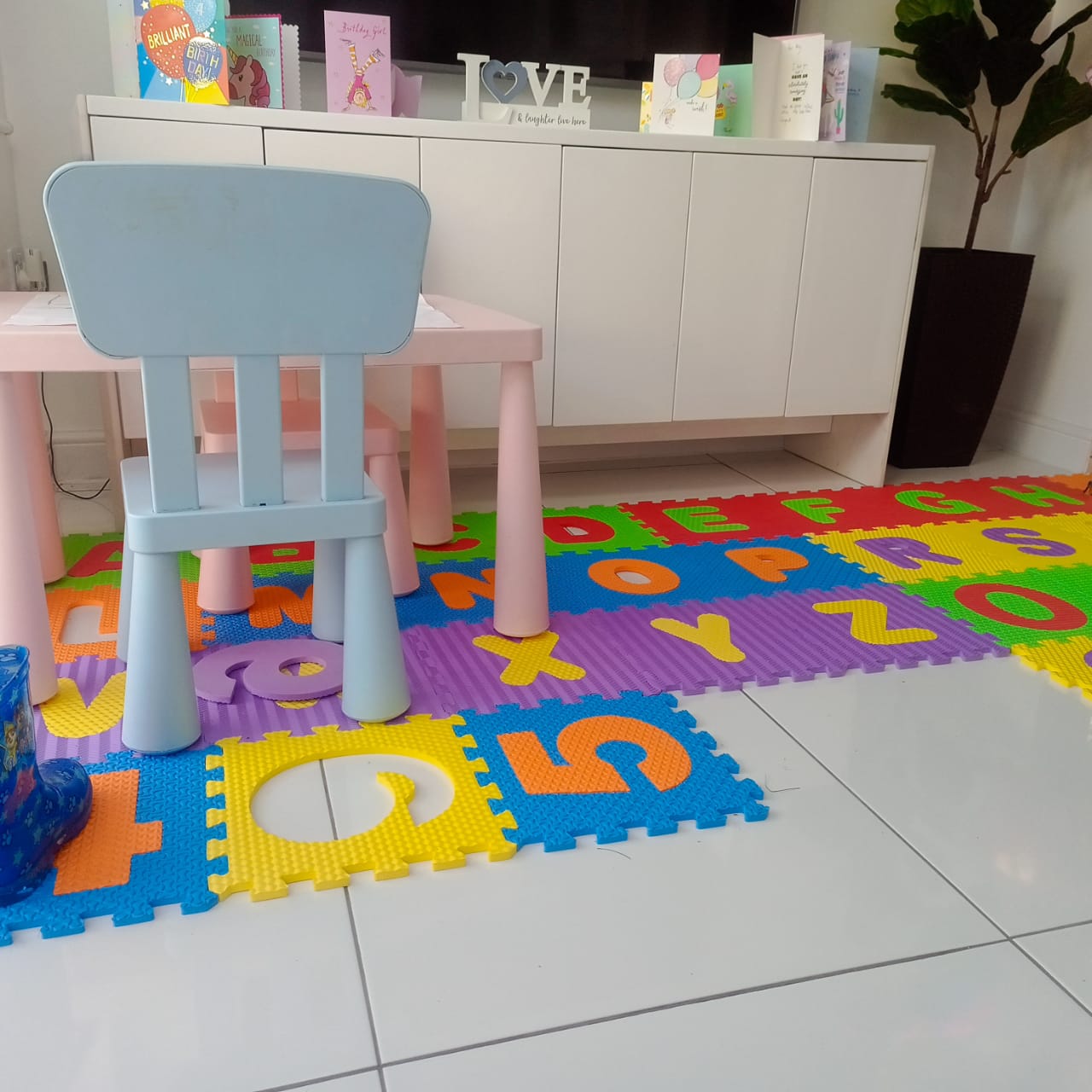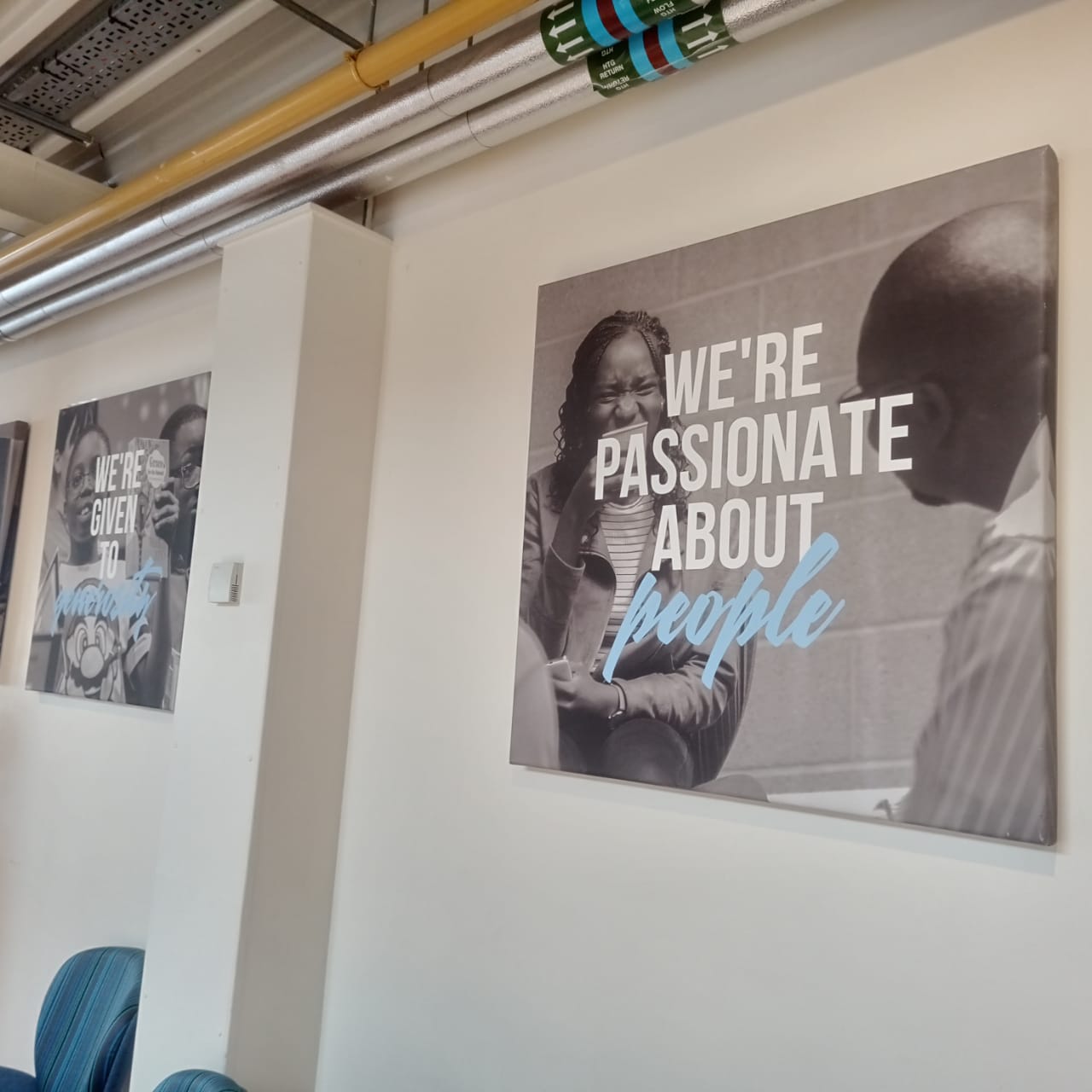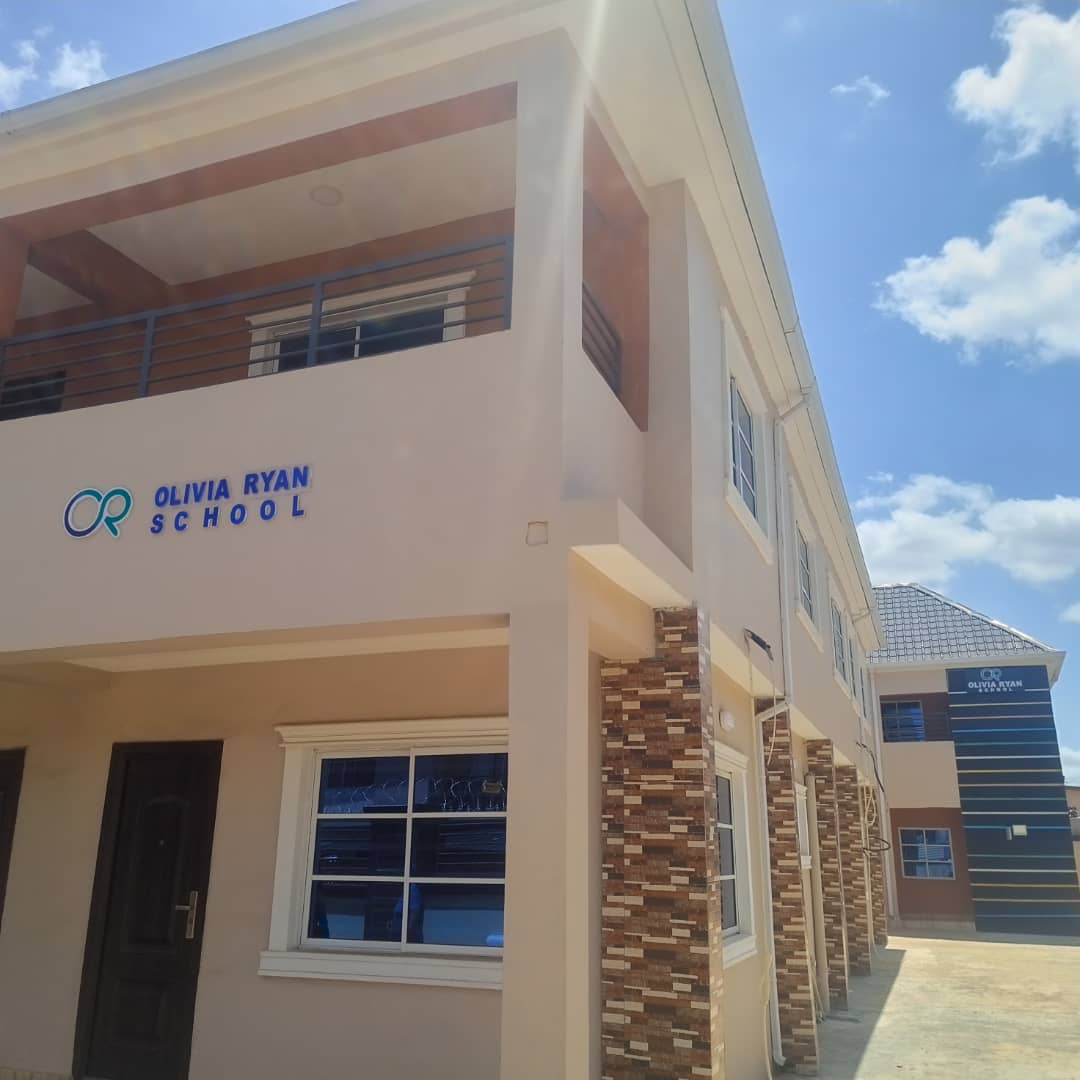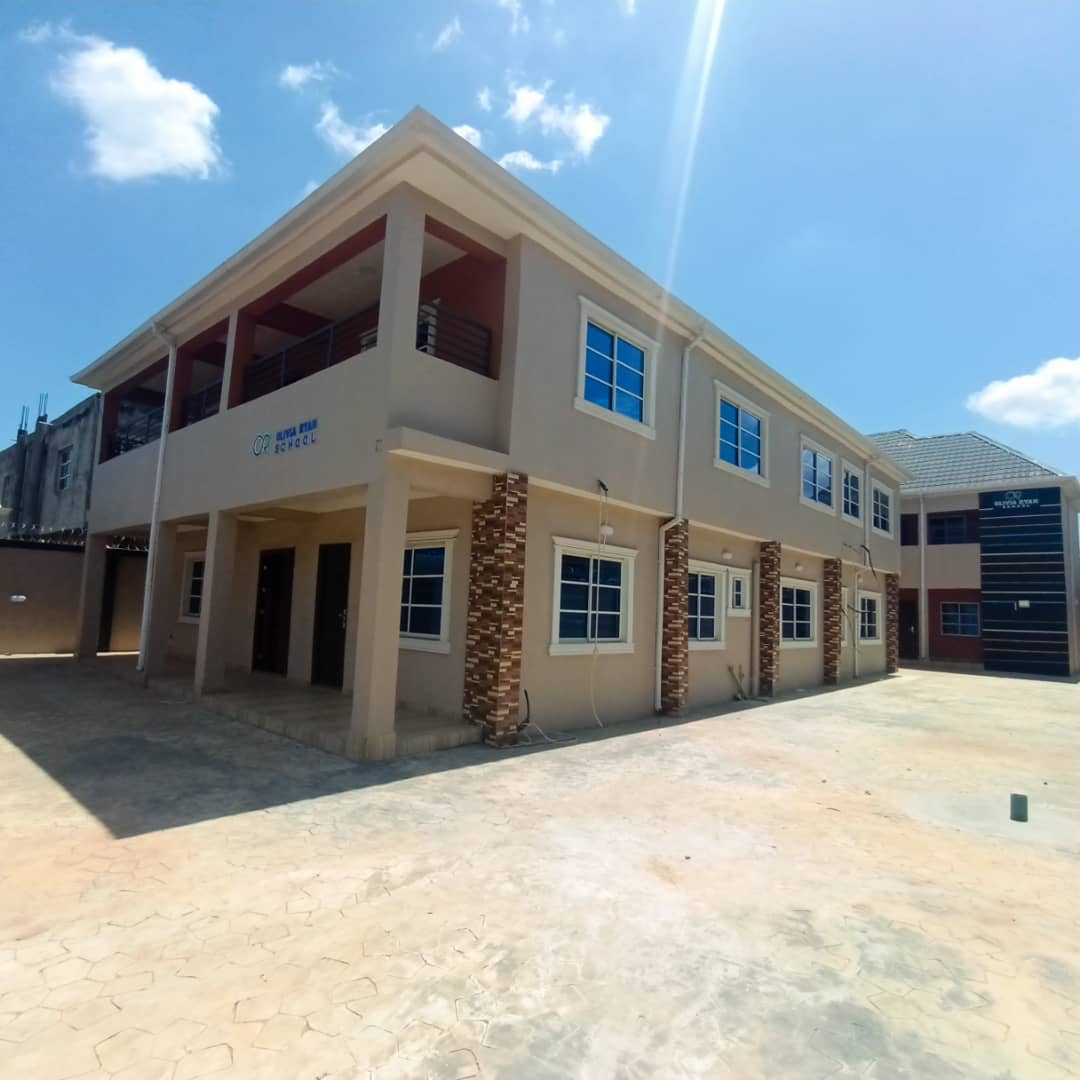Academics
Curriculum
Learning is our core purpose at Olivia Ryan School where we adopt a child-centered approach.
Our learning and teaching policy emphasises the importance of exciting, relevant and challenging lessons to prepare our learners for life.
Excellent teaching is the basis for personalised support so that each student can achieve their best.
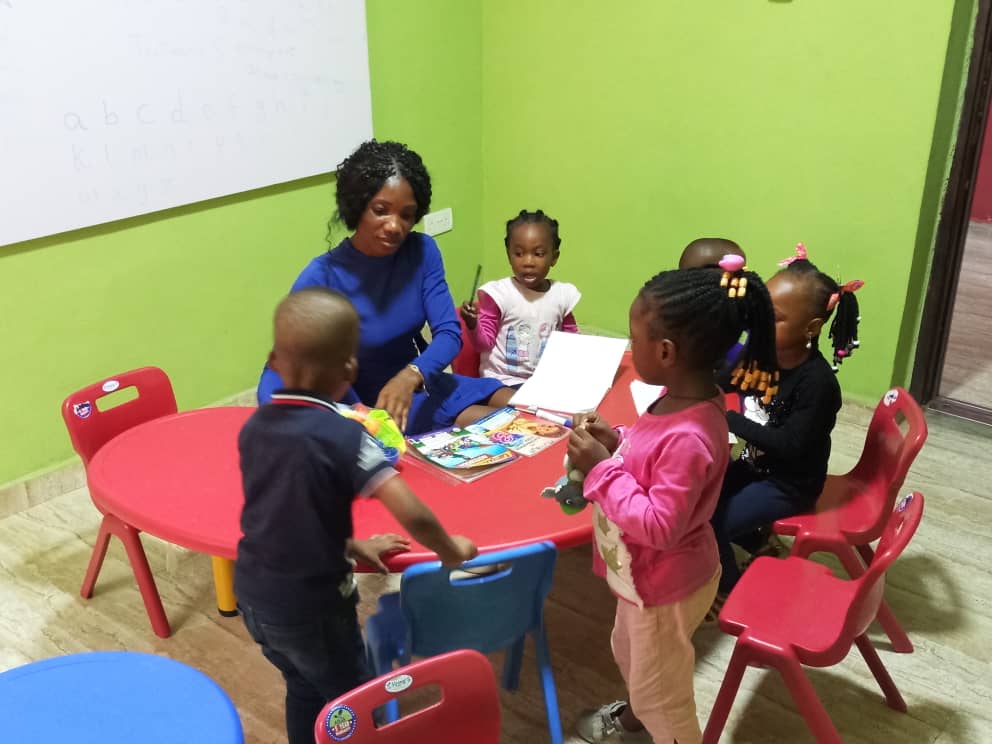
Creche Programme
A typical day in a child’s life consists of sleeping, eating, individual and group events with the use of relevant Montessori materials and resources which helps the development of the child. Group and personal lessons are organized around social, language, motor, cognitive, sensory and practical life. Rhymes, books and songs also make up a child’s daily activities. We plan each child’s lessons and activities based on the uniqueness and schedule of the child. Because we understand that self-expression is one of the most important aspects of child development, we provided dedicated playrooms for your children to find daily expressions. At Olivia Ryan crèche, your child begins his/her journey into the warm, loving and self-learning Montessori environment, where his developmental indicators are encouraged and independence, coordination and concentration are focused on for the overall development of the child. We know that parents are the first teachers of their children, and consequently partner with you as we work with your child, to make the most of his potentials. Age Section: 3months – 18 months Hours: 6.00am – 6.00pm
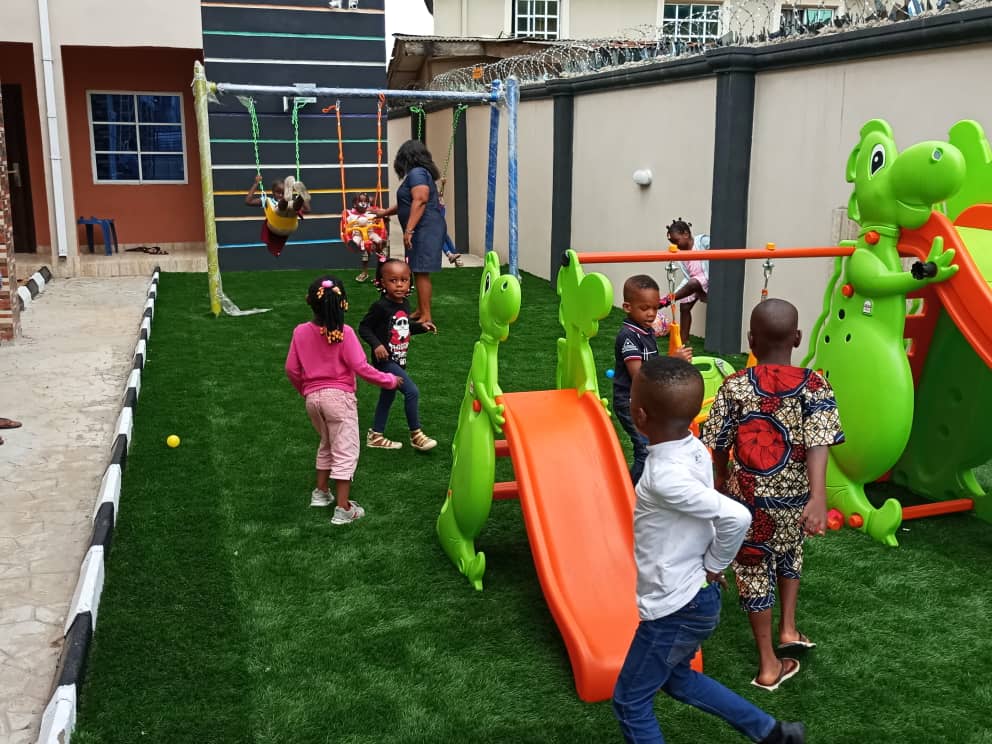
Toddler Programme
Our Montessori Toddler programme focuses on supporting your child across all developmental areas – Physical, Cognitive, Language, Emotional and Social. Importance is on encouraging your child to become independent, through interaction with the environment and specific resources and activities cutting across all areas – movement, thinking, language and communication, feeling and interacting with others, including practical life skills and sensory education. The eighteen months spent in the toddler classroom is employed to help your child gain confidence in himself, socialize and bond with others within a secure environment, foster your child’s natural desire for exploration within a carefully prepared and enriching environment, and cultivate an interest in learning. Activities include use of several didactic Montessori materials, solving puzzles, storytelling, art & craft work, singing, and great outdoor activities Age Section: 18 months – 2.5 years Hours: 8.00am – 1.30pm
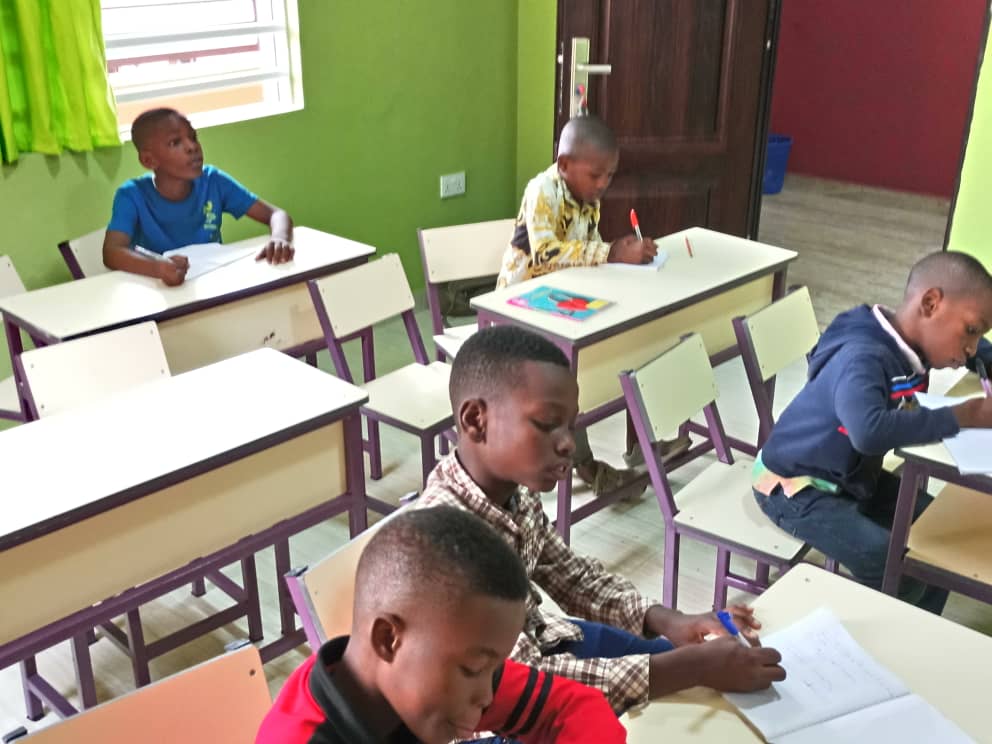
Preschool
The core curriculum at pre-school level is the Montessori Curriculum. Your child will work with Montessori materials and other educational resources, which will help him/her perfect their natural tools for learning, and also learn how to think, communicate, behave responsibly and become independent. Through the use of the Montessori materials, the basic skills for language and literacy, mathematics, knowledge and understanding of the world, creative development, personal and social skills including physical development are achieved. Your child will be treated with trust and respect, and encouraged to work out his/her own relationship, and also appreciate his/her environment by caring for, and learning to respect his/her natural world. Your child is thus prepared to make a smooth transition to the elementary school and other educational materials that will be used in future.
ACADEMIC CURRICULUM
In addition to encouraging your child to be independent, he/she is given the freedom to choose his or her work/activities in the different curriculum areas.
Your child is introduced to Montessori materials within the prepared environment and shown how to respect and care for the environment and all things within it. Other activities such as singing, music and movement using percussion instruments and other forms of creativity are encouraged. Termly themes are also explored in class discussions, and inform planned activities for the children across the entire pre-school.
Overall, the child is given the necessary foundation for work which the elementary school will build on. Subjects are categorized under the following major curriculum areas.
These are everyday living activities which afford the child the opportunity to imitate adults as he carries out daily tasks that adults consider ordinary, develop his motor skills, learn to care for himself and his environment and also develop social skills, grace and courtesy. Example of such activities include washing, dressing up, polishing, sweeping, opening and closing and such like. By carrying out these activities the child perfects his coordination, concentrates more effectively, works more efficiently and learns to observe more carefully.
Sensorial exercises help the child to distinguish, categorize, and use his senses to build a knowledge and understanding of the world he lives in. The child’s senses become refined and sharpened, thereby permitting him to form new concepts through experience and exercise. Sensorial exercises help to lay a proper foundation of understanding subjects like mathematics, geometry and scientific skills in future.
Montessori identifies the mathematical mind as one of the tendencies of the human being. Mathematics is all around us and we use numbers and engage in calculations in our daily encounters, without even realizing we are being mathematical. The Montessori mathematics curriculum employs the use of beautifully designed, precision, and graded concrete materials to help the child understand mathematical concepts from identifying number symbols, to quantifying, understanding the concept of zero, odd & even numbers, number bonds incorporating tens and teens, place values up to thousands, number operations – addition, subtraction, multiplication, division, up to fractions – all explored through the use of concrete materials with the child gradually and systematically moving towards abstraction.
The goal of the Montessori Language area is to support the child’s natural process for acquiring and perfecting language. For the young child in the Montessori Early childhood classroom, language is something to be discovered and created rather than learned.
The starting point is the provision of a language rich environment and a solid foundation for reading and writing through conversations, listening, speaking and activities for auditory and visual discrimination. The extensive curriculum includes handwriting, graded word building, word study/spelling, early grammar, descriptive, narrative & creative writing and literature.
All of these are carried out through the use of concrete and teacher –created materials and resources, exciting games and activities, to sustain the child’s interest and make language learning enjoyable and fun for the child
Cultural subjects comprise of History, Geography, Science, Botany (study of plants), Zoology (study of animals), cosmic education, peace education, environmental studies – incorporating religion, festivals and national celebrations.
History is explored through specific activities and materials, which help the child explore the vocabulary and concept of time, timelines, and differentiating between past and present, including developing an understanding of the past.
Geography in the Montessori Early childhood classroom includes physical and cultural geography. It begins with learning simple directions and position of things, study of the earth, and extends to mapping of the world, extensive study of continents, countries, land and water forms and identification of flags, beginning with one’s own country and continent. The journey to becoming a Scientist has its humble beginnings in the Montessori early childhood classroom.
Your child is introduced to the physical properties of substances like magnets and magnetism, floating and sinking materials, and encouraged to explore physical principles like friction, colour mixing, refraction with prism. Your child will be encouraged to conduct investigations, research and explore nature.
Study of Plants and Animals within the Montessori environment begins with simple pairing exercises, naming and identifying the different parts of a plant, or the different animal families. Your child will learn about the different classifications of the plant and animal kingdom and the interdependence of living things on each other. Specific concrete materials, teacher created materials and planned activities will help your child reinforce these lessons.
Through all these activities the child learns about the real world (the natural and man-made environment) exploring countries, food, customs, music, climate, language, fauna and flora. Above all, the child learns about love for all and appreciation and tolerance of all things and all people. He becomes a citizen of the world and understands his position in the circle of life.
Arts, crafts, music and movement are not relegated in the Montessori classroom. Your child is encouraged to foster their imagination in creative ways, employing different forms of media to express themselves. Music and music making, using percussion instruments, elements of music – rhythm, tempo, and pitch with freestyle dance are all explored in music and movement. Art activities are planned based on explored themes, seasons, festivals and interests of the children. The focus is on the process the child goes through in exploring the activities and not on the product.
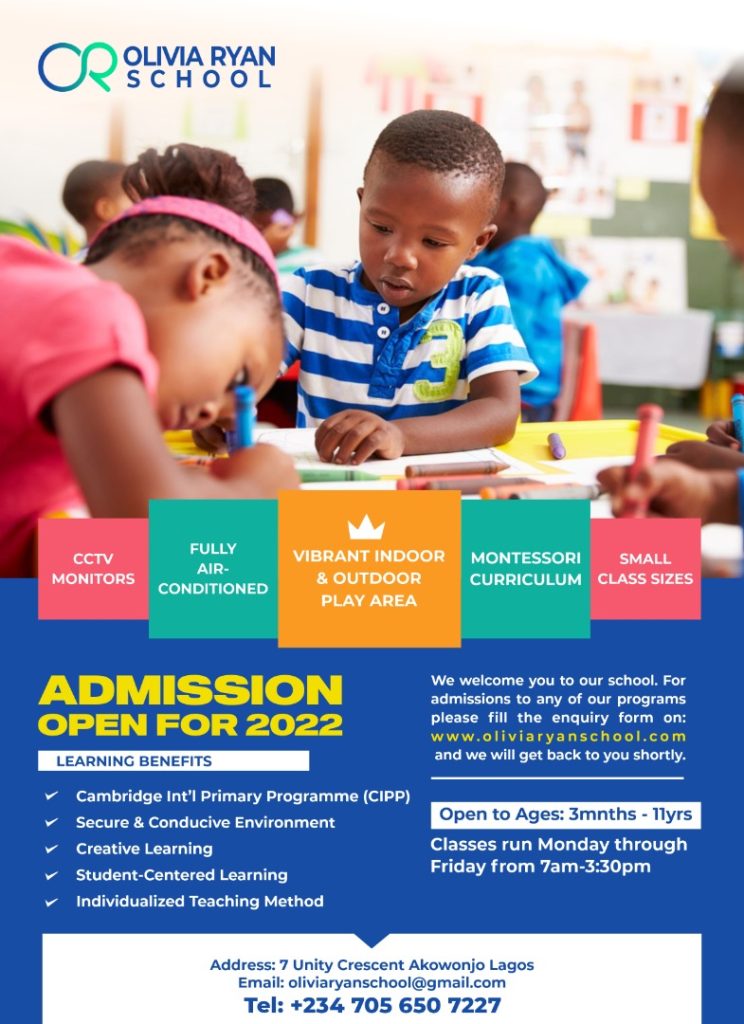
Primary Programme
Our Primary programme at Olivia Ryan School builds on the pre-school experience, and reflects the child’s new stage of development.
Olivia Ryan Schools are Cambridge International Associate Schools, and employ the Cambridge International Primary Programme (CIPP), a curriculum that is rich in content and used in over 150 countries of the world. CIPP delivers a broad and balanced world class curriculum that is adaptable to our context, culture and ethos as a school.
With clear learning objectives and development of knowledge and skills, it develops children who are confident, reflective, innovative, engaged and take responsibility for their learning.
The CIPP Checkpoint tests provide an international benchmark of learner performance in relation to the curriculum, their learning group, the whole school, and against all learners who have taken the same tests in that series around the world.
Running through Years 1 – 6, the curriculum framework for English is broken down into Reading, Writing, Speaking & Listening. Pupils are helped to acquire knowledge, obtain necessary skills and gain understanding of concepts.
In preparation for higher learning, the Cambridge Primary Science curriculum framework covers four content areas, namely – Scientific Enquiry, Biology, Chemistry, & Physics. Through the Cambridge Science curriculum our pupils begin to participate in investigative science from an early age. They consider ideas, evaluate evidence, record and analyse their data. This kindles their interest for scientific knowledge and builds in them the confidence to explore their environment, thus becoming more aware and better informed about their world.
Building on the Montessori Early Childhood curriculum and a foundation of concrete learning with Montessori Math materials, Cambridge Primary Mathematics expands the mathematical minds of our pupils through work in five content areas – Number, Geometry, Measure, Handling data & Problem solving.
Cambridge Checkpoint
Our Year 6 pupils are assessed in the core subject areas in the Cambridge Primary Checkpoint (CPC) examinations.
Centre for Evaluation and Monitoring (CEM)
Children from ages 5 – 11 are tested annually using the CEM tests from the University of Durham/ Cambridge.
These internationally benchmarked tests :
- Identify and report on a pupil’s strengths and weaknesses, in order to make targeted improvements to teaching and learning on a year-by-year basis
- Compare a pupil’s result against their class, school or other schools around the world.
Assure parents of their child’s true ability and trust in the feedback they receive on their child’s performance.
Pupils are assessed half- termly in all subjects.
Parents receive a written report every half-term in addition to the formal half termly Parent- Teacher meeting. Parents and teachers are encouraged to communicate any concerns they might have at the earliest opportunity.
In addition to the Cambridge Primary programme, Olivia Ryan Schools primary programme offers a broad curriculum, which helps children develop a thorough understanding of subjects like:
- PSHE (Personal, Social, & Health Education)
- NGC (National & Global Consciousness) – A discipline unique to Olivia Ryan, based on history and geography, which takes our pupils on a fact-finding journey & exploration of their immediate environment, nation, continent and further afield through research & project work
- ICT – Coding & Programming
- Drama & Public Speaking
- Social Studies
- Christian Religious Knowledge
- Fine and Creative Arts
- Music & Instrumental Tuition
- Nigerian Language – Yoruba
- French
- Spanish
